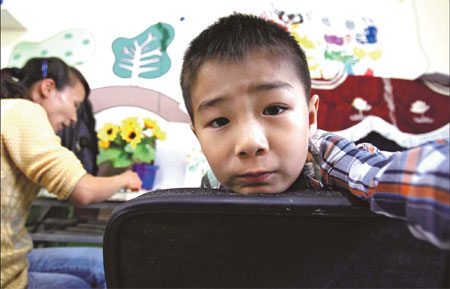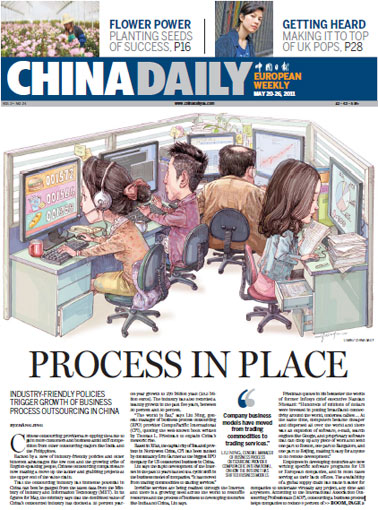Health
Breaking the silence
Updated: 2011-05-25 07:50
By Liu Zhihua (China Daily)
|
Autism awareness is higher in the big cities like Beijing, which have public and private rehabilitation training centers. Wang Jing / China Daily |
Greater public awareness enables the early diagnoses that give autistic children a better chance of learning how to communicate and function, Liu Zhihua reports.
Xiao Xing (not his real name) ignores his parents?and grandparents?calls as he spins a rotating office chair. The 3-year-old doesn't seem to notice when his parents leave the room at the request of Jia Meixiang, an autism specialist at the Peking University Sixth Hospital in Beijing. The doctor produces a bottle of candy and rattles it, calling, "Xiao Xing, come here, and I will give you sweets.?But the little boy fails to respond and keeps spinning. Jia explains that most children would cry or try to follow their parents ?or at least respond when addressed.
The boy's parents brought him to the hospital when they realized something was different about him. He never speaks, aside from occasional, meaningless utterances.
While they knew he was experiencing some developmental abnormalities, they never dreamed he had autism.
The incurable neural development disorder is characterized by impaired social interaction and communication.
Researchers have discovered autistic people have different brain biochemistry, which makes it impossible for them to learn in the same ways as non-autistic people. Their brains' nerve cell organization and synaptic connections are irreversibly misaligned from birth, explains Jia, who has treated the disorder for more than 20 years.
Consequently, autistic people can't absorb knowledge and social skills as others do subconsciously.
"They can neither communicate nor spontaneously form relationships," Jia says.
Autism can't be diagnosed in the womb. Symptoms (see sidebar) aren't apparent until the babies are about 6 months old.
Early intervention is the only anchor to keep them from experiencing severe mental retardation or social disconnection.
"The earlier the intervention, the better," Jia says.
The average diagnosis age of autistic children in the United States is about 1 year, while it's between ages 2 and 3 in China, experts say.
Many autistic children who receive early treatment succeed in primary school and beyond. Some may even find good jobs and live independently, Jia says.
Huang Yuqi, for one, outshines many of his primary school classmates. Few would immediately notice the 8-year-old is different from other children his age.
The only sign that he's autistic is that he sometimes includes indiscernible sounds in his speech.
His relatively advanced abilities are present because Huang was diagnosed at around age 2.
"If we had discovered the disease later, everything might have been different," Huang's mother, Xie Hui, says.
Huang was born to a middle-class Beijing family in 2003. His parents were busy with their promising careers, so a baby-sitter helped raise the boy.
"He didn't speak or try to," Xie recalls. "He could silently play by himself all day."
Family friends pointed out the boy never made eye contact and seemed obsessed with spinning himself around.
Xie's online research pointed to one conclusion - that Huang was autistic.
Despite the father's unwillingness, Xie insisted on taking the toddler to the hospital.
Doctors diagnosed him and told the parents the 2-year-old's IQ was roughly equal to the average 11-month-old's.
"We felt so guilty for not noticing earlier," Xie says.
"But I still feel lucky. I can't imagine what would have happened to him if the diagnosis had been made later."
Huang's mother quit her job in 2006 and enrolled him in Beijing Stars and Rain, an institute founded in 1993, providing special education for families with autistic children.
Huang and his family joined the Applied Behavioral Analysis program, a widely used autism treatment based on behaviorist theories.
The basic concept of the program is that behaviors can be taught through rewards and consequences, says the institute's founder Tian Hui-ping, the mother of a 25-year-old autistic son.
The 11-week program prepares parents to teach communication and social rules. It also stimulates the child's development, especially in the area of language.
After about three weeks, Huang started forming slurred words and eventually could say simple words, such as "Mom" and "Dad".
Sixth months later, he could be engaged in conversation but still couldn't initiate one.
He can now engage in mostly fluent conversation, punctuated by mispronunciations. Most importantly, his IQ is much higher than most of his peers'.
The youngest patient of Dr Jia is 6 months old.
The infant was diagnosed early because his mother works in the early learning industry and noticed abnormalities in his development.
Most parents overlook small differences and believe their children are overly docile and obedient, rather than autistic, Jia says.
Autism awareness is higher in the big cities, most of which have public and private rehabilitation training centers.
But the disorder remains unknown in most underdeveloped areas.
Bai Tianrong, a 6-year-old boy from Tongliao city in the Inner Mongolia autonomous region, was diagnosed with autism by the Children's Hospital of Shanghai when he was 3.
"When I returned home and told the local doctors my son was autistic, they didn't understand, because they had never heard of the disorder before," Bai's mother, Bao Yujie, says.
While there are no official figures on the number of autistic people in the country, the incidence rate among Chinese children younger than 6 is one in 1,000, according to a China Disabled Person's Federation report.
"China has in recent years made great progress in raising public awareness about autism, but a lot remains to be done," Tian says.
"All of society should know more about it, and we should all work together to ensure a better future for autistic people."
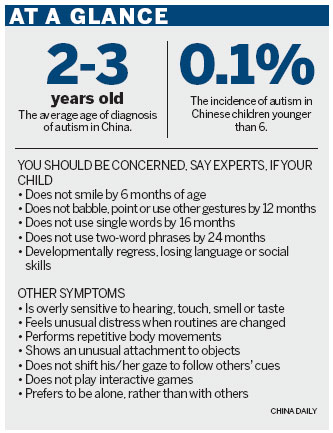
E-paper
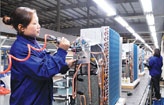
Thawing out
After a deep freeze in sales during the recession, China’s air conditioner makers are bouncing back
Cool Iron lady
Of good and evil
Build on security initiatives
Specials

Memory lanes
Shanghai’s historic ALLEYS not just unique architecture but a way of life
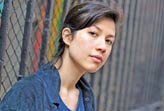
Great expectations
Hong Kong-born singer songwriter rises to the top of the UK pops.
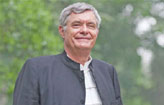
A diplomat of character
Belgian envoy draws on personal fascination to help build China ties.
